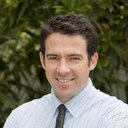Comparison of the psychosocial effects of epilepsy and narcolepsy/cataplexy: a controlled study.
Keywords
Abstract
A questionnaire survey compared the psychosocial effects of epilepsy in 60 patients without major organic pathology (selected cases with temporal lobe epilepsy or primary generalized epilepsy) with those of matched (duration of illness, sex) patients with narcolepsy/cataplexy and with those of age- and sex-matched controls. Comparing epileptic patients with controls, we confirmed the well-documented marked deleterious effects of epilepsy upon work, education, occupational and household accidents, recreation, personality, interpersonal relations, and other parameters. Comparisons of epileptic and narcoleptic patients, however, showed that, in general, persons with narcolepsy are even more psychosocially impaired. The narcoleptic patients showed greater frequencies of disease-attributed reduced performance at work, poorer driving records, higher accident rates from smoking, greater problems in planning recreation, and other significant differences. Rather dissimilar profiles of psychosocial impairment were found to characterize the two conditions, and these were largely understandable as a function of their symptoms. The only areas in which epileptic patients showed greater problems than those with narcolepsy were in educational achievement and in ability to maintain a driving license. Most of the intergroup differences remained significant even for smaller groups matched also for age. The somewhat greater psychosocial impact of narcolepsy appears to be due to the continuous excessive daytime sleepiness that persists between the diagnostic attacks, whereas persons with epilepsy are relatively alert between seizures.


